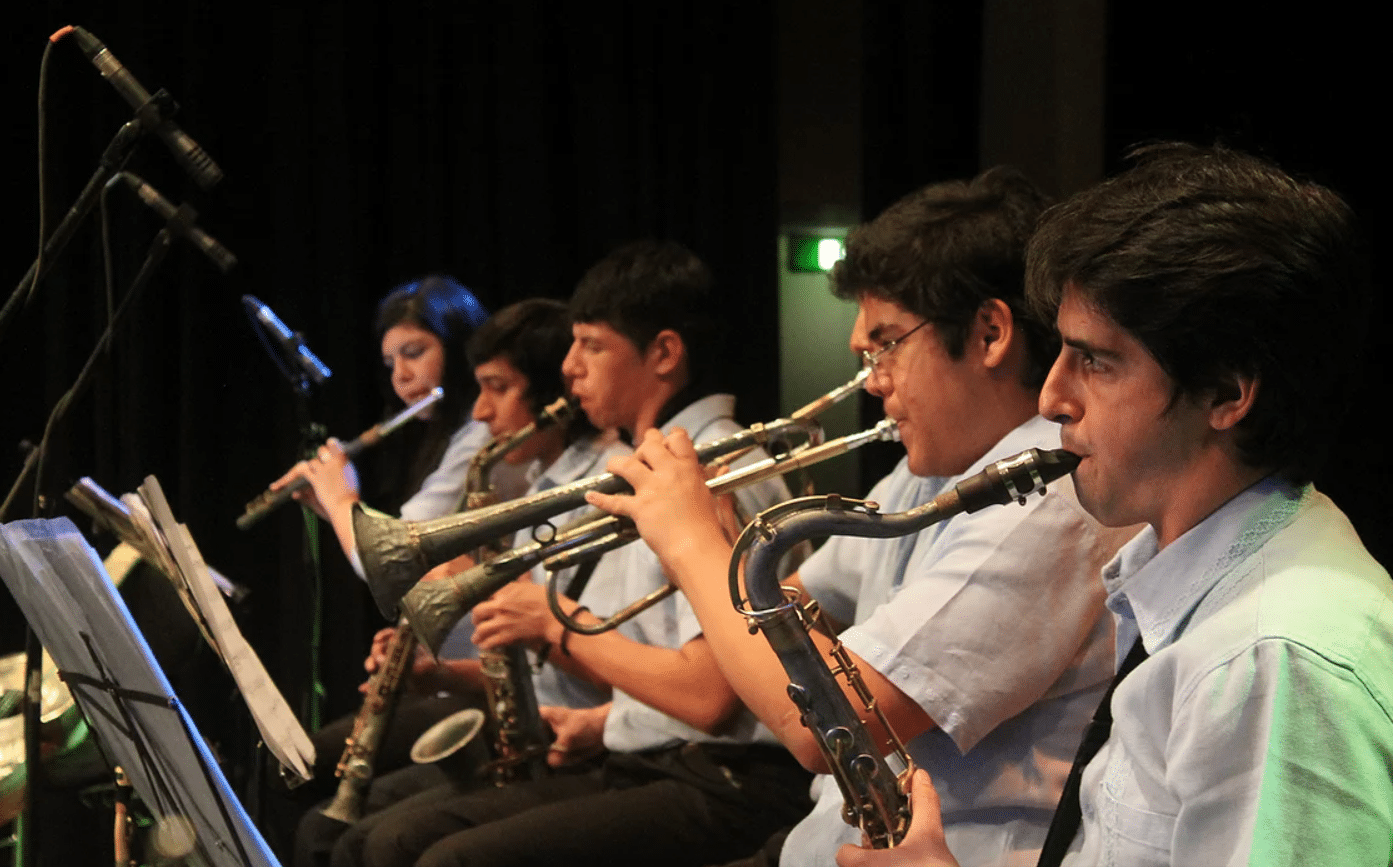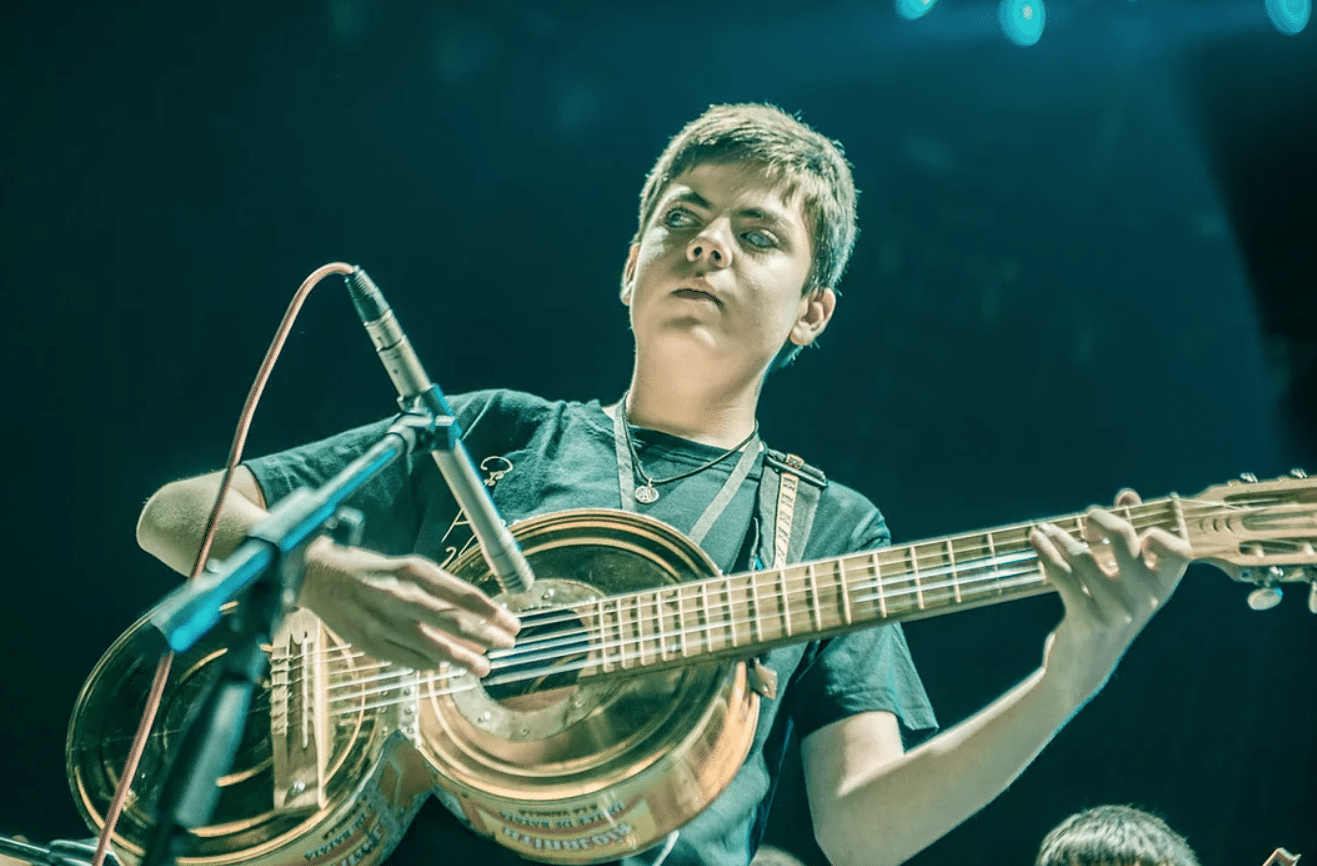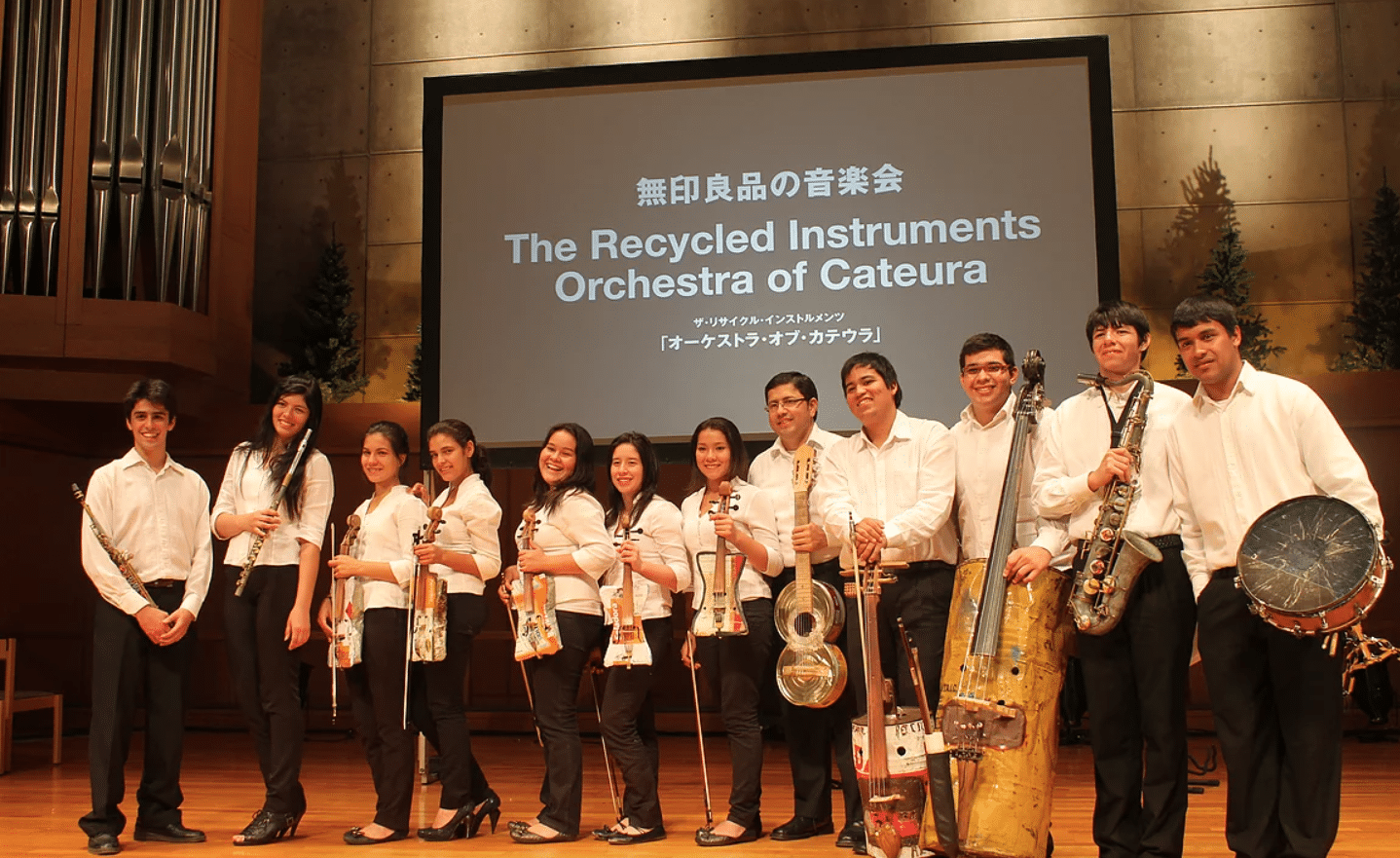Paraguay (Asunción)
An orchestra made up of young people at risk of social exclusion turns rubbish from the largest landfill in Paraguay into recycled instruments.
The Cateura landfill, built more than 30 years ago near the city of Asunción, is the largest waste deposit in Paraguay. In it, children and young people from the surrounding neighbourhoods play and even work every day with the rubbish that they find.
“The world gives us rubbish, and we return music to the world.” – Favio Chávez
In 2002, Paraguayan musician Luis Szarán created Sonidos de la Tierra (Sounds of the Earth) to bring music closer to the most disadvantaged populations of the country through the creation of free music schools. Favio Chávez, a musician and environmental technician who worked in the Cateura recycling programme, suggested that Luis take music to the poor neighbours that surrounded the landfill, to give a second chance to those young people. This is how Favio began to give music lessons to the boys and girls of Cateura.
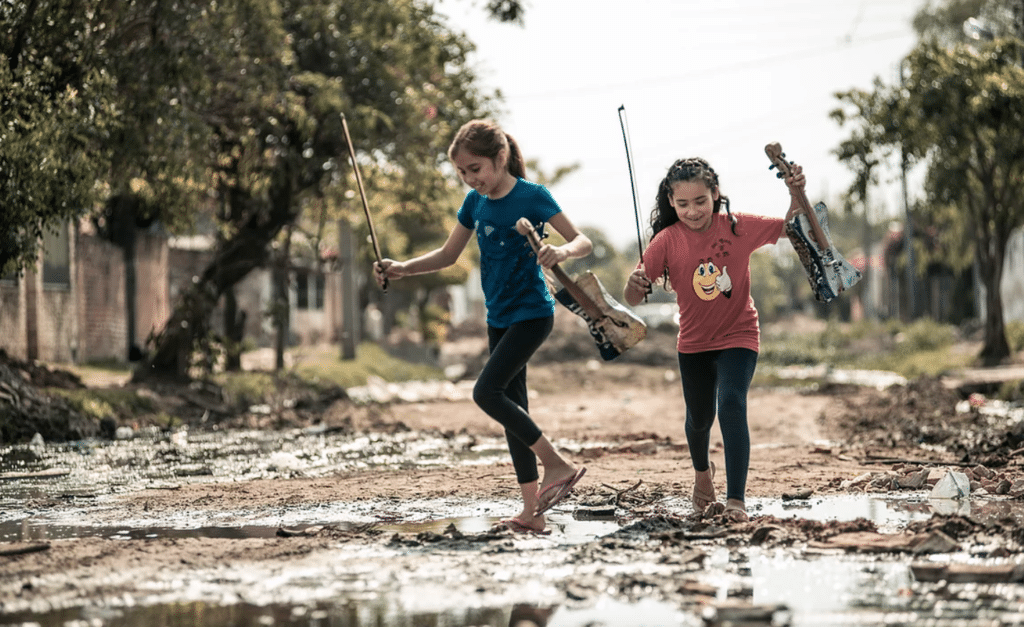
There were so many students interested that there were no instruments for everyone, which inspired the idea to create all kinds of instruments from waste materials from the landfill: cans, rusty pipes, cutlery, oil drums, cables or bottles. In fact, in Cateura it is common to see houses, toys and other objects made with the rubbish from the nearby landfill, so the waste was also the solution to create the instruments that they needed.
They created them with the help of the luthier and recycler Nicolás Gómez. A luthier is an artisan who makes or repairs stringed instruments such as cellos, violins, guitars, mandolins, dulcimers and banjos.
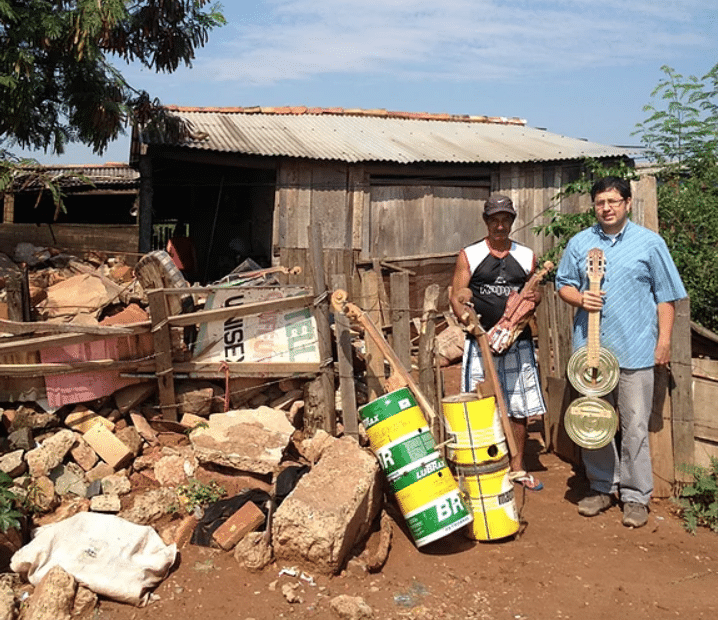
Nicolás Gómez and Favio Chávez
The Recycled Instruments Orchestra of Cateura was born in 2008, and at the beginning was made up of the children of waste dump workers. Since then, this symphony orchestra has given concerts all over the world and has even acted as opening act for the group Metallica on their South America’s tour (2014).
Nicolás, who was a recycler at the landfill, is in charge of rescuing the most suitable materials and assembling the structures of the instruments. Then the musicians and the conductor add strings and accessories, testing the possibilities of these “junk instruments” to be used for musical learning or to be played by the orchestra. Violins, violas, cellos, double basses, guitars, flutes, saxophones, trumpets and percussion instruments have been born from the landfill.
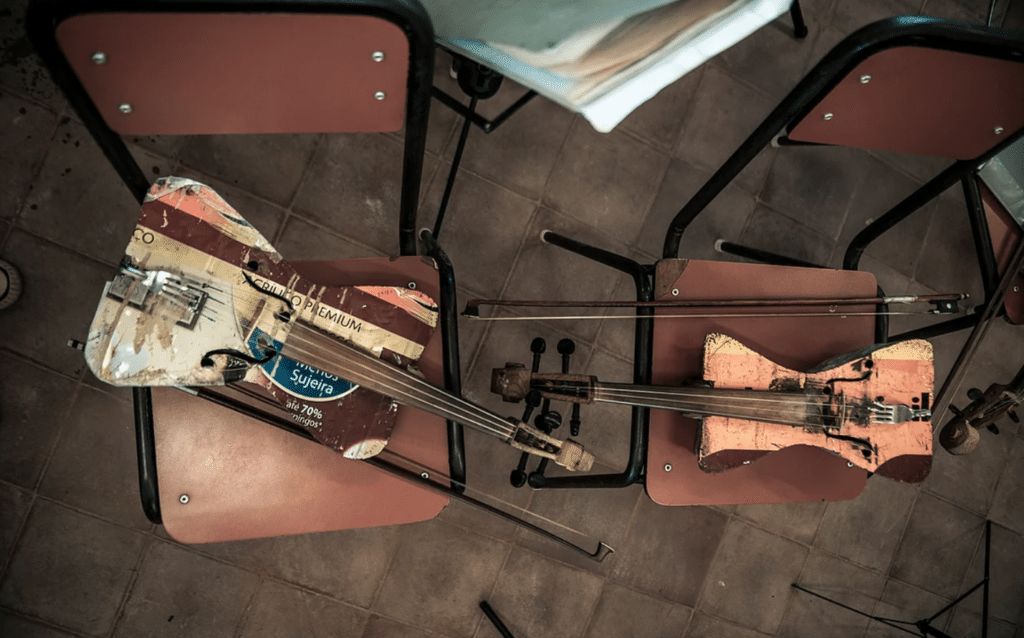
The members of the orchestra are young people from 11 to 25-years-old who are at risk of social exclusion, and have now developed a wide repertoire that ranges from classical music by Beethoven or Mozart, to the hits of the Beatles, through folkloric pieces, Latin American compositions and famous soundtracks.
The orchestra has been so successful that it has even inspired a thrilling documentary.
Like all artistic groups, the Recycled Instruments Orchestra of Cateura was impacted by the lockdown caused by the pandemic. However, they continued rehearsing and offered some performances in a virtual format. In addition, they provided school aid and food to the families of the community in the Bañado area. and they have also recorded a song virtually with activists from various countries. Their goal in 2021 is for the members of the orchestra to be able to resume their instrumental practices continuously, taking care of all the protocols.
In addition to giving new life to waste and spreading the joy of music, this project creates opportunities for vulnerable young people, providing them with options that allow them to aspire to better living conditions.
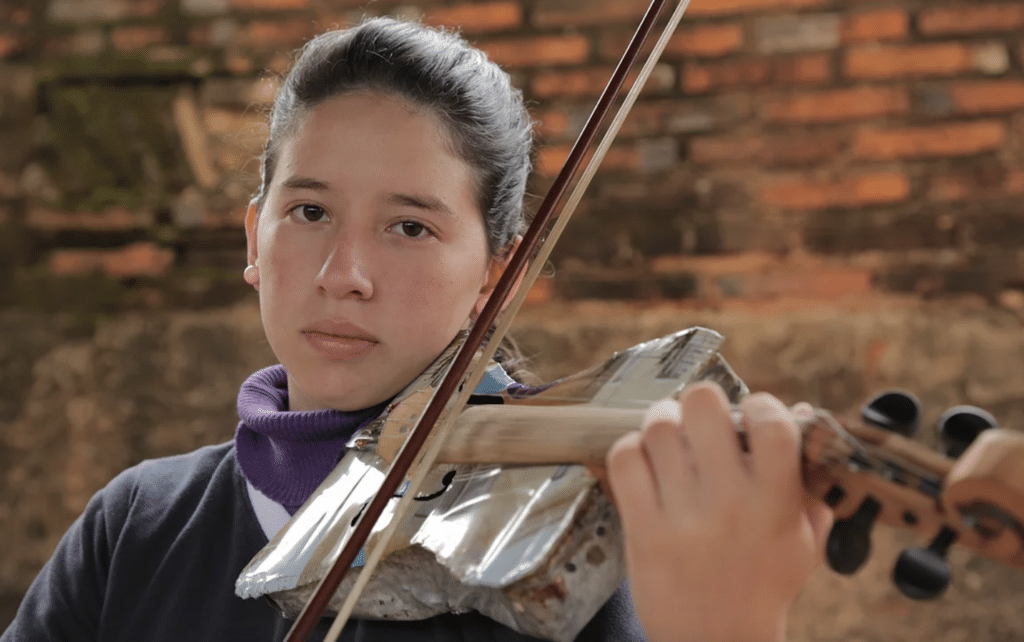
AtlasAction: Follow the orchestra on Facebook or Twitter for updates and feel the joy of music with recycled waste.
Project leader
Favio Chávez, founder
Support the Atlas
We want the Atlas of the Future media platform and our event to be available to everybody, everywhere for free – always. Fancy helping us spread stories of hope and optimism to create a better tomorrow? For those able, we'd be grateful for any donation.
- Please support the Atlas here
- Thank you!


